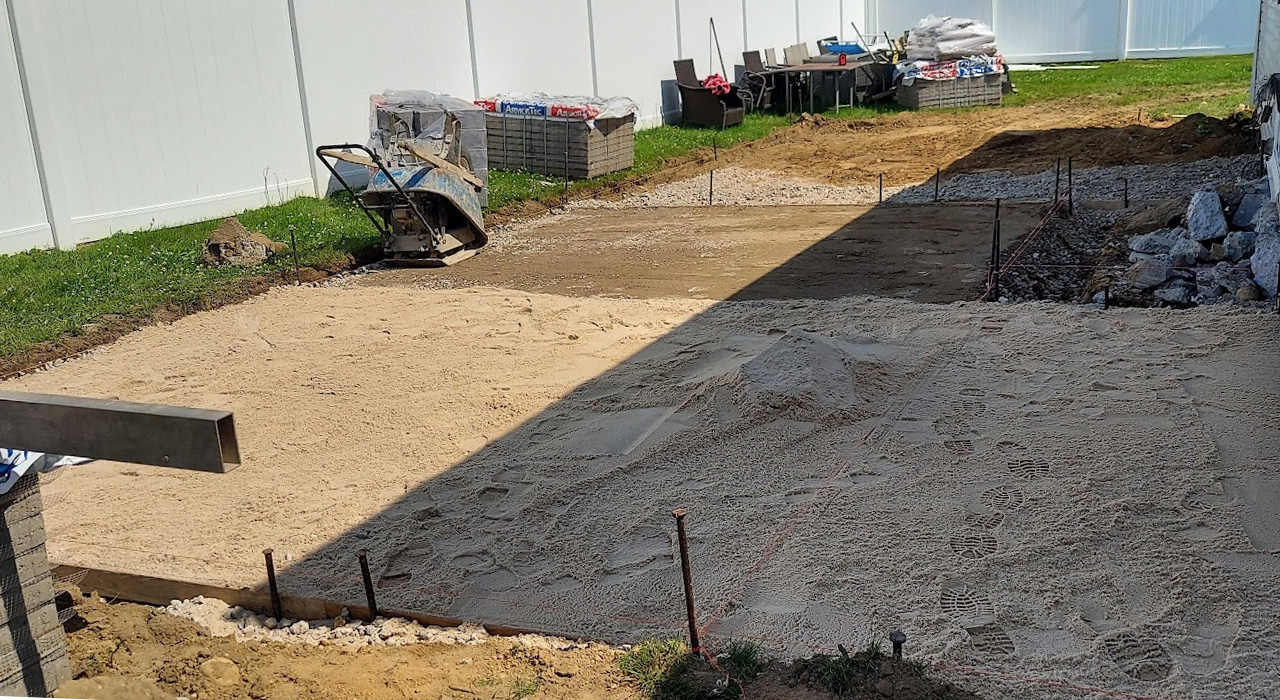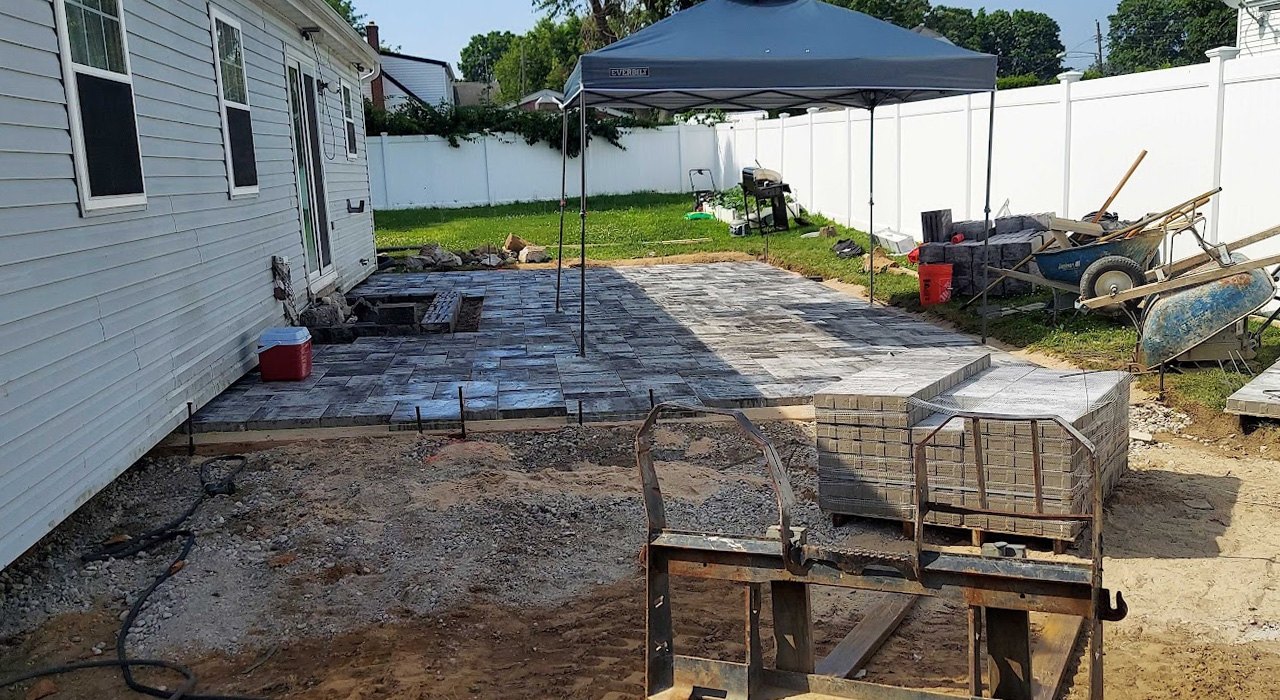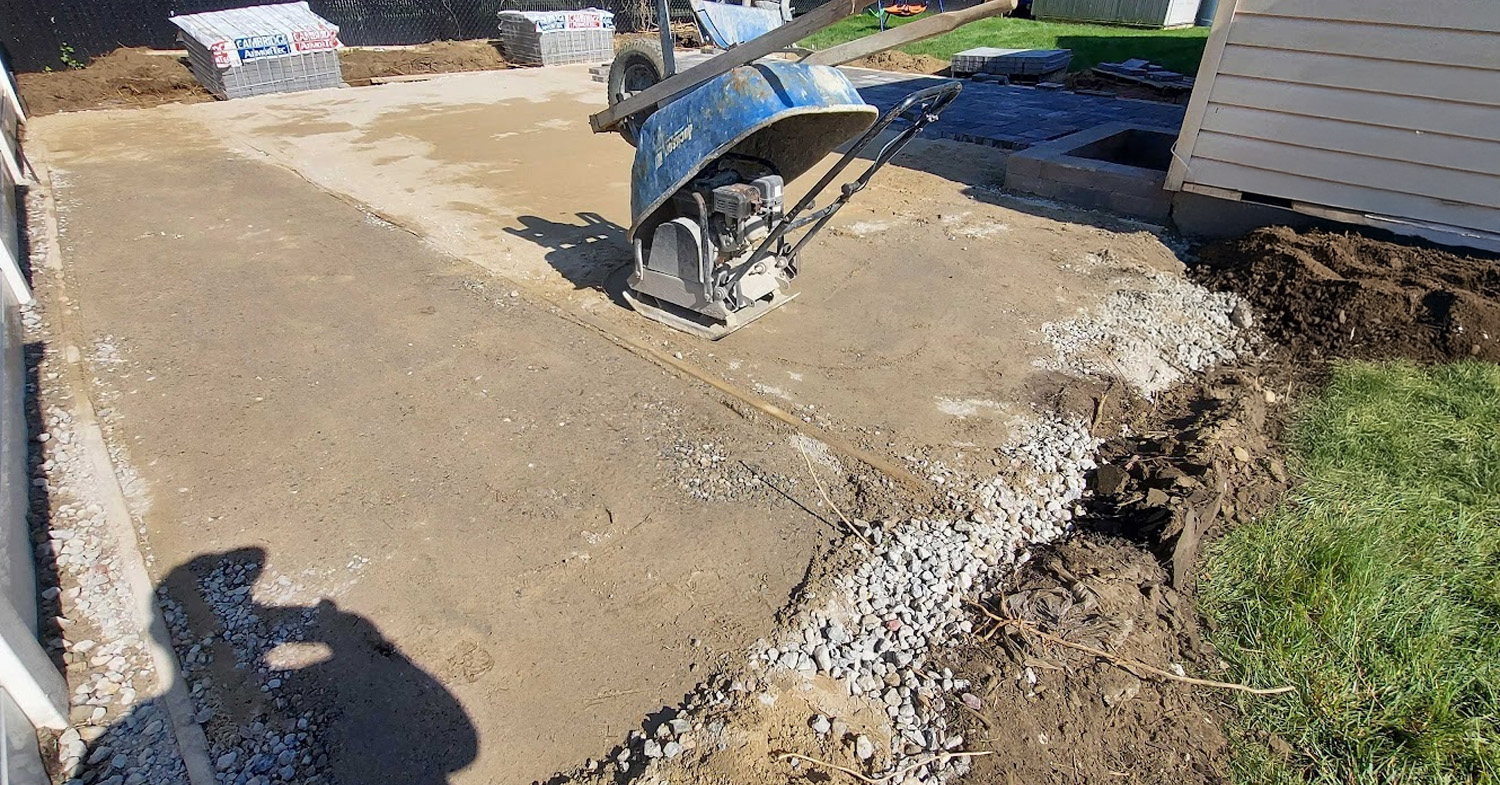If you’re planning to update your backyard in Suffolk County, you’ve likely asked yourself: Should I go with a concrete patio or a paver patio? Both options can create a beautiful outdoor space, but they come with different benefits, costs, and long-term results. Choosing the right material can mean the difference between a patio that cracks in a few years and one that lasts for decades. In this guide, we’ll compare concrete patios and paver patios so you can decide which is the best fit for your home.
Why Homeowners Consider a Concrete Patio
Concrete patios are popular for being straightforward and cost-effective. Poured concrete creates a smooth surface and can be stamped or stained for different looks. The upfront price is usually lower than pavers, which makes it appealing to budget-conscious homeowners. However, concrete is prone to cracking, especially in Suffolk County where winters bring freezing and thawing cycles. Repairs often mean replacing large sections, which can add up over time.
Why Paver Patios Are a Durable Alternative
Paver patios, on the other hand, are built with interlocking stones installed over a compacted base and sand layer. While the initial cost is higher than plain concrete, pavers offer significant advantages:
- Durability: Pavers flex with seasonal changes, reducing cracks.
- Style: Available in many colors, shapes, and patterns for a custom look.
- Maintenance: Individual stones can be replaced if damaged, saving money in the long run.
- Value: A paver patio can boost curb appeal and resale value.
Learn more about installation details on our paver patio services page.
Key Differences Between Concrete and Paver Patios
Here’s what to keep in mind before choosing:
- Cost: Concrete patios usually cost less upfront, while pavers cost more initially but pay off with longevity.
- Maintenance: Concrete requires sealing and is costly to repair; pavers need occasional re-sanding but are easy to fix.
- Appearance: Pavers offer more design flexibility, while concrete has limited options.
- Longevity: A properly installed paver patio can last 25+ years, while concrete may need repairs much sooner.

What Suffolk County Homeowners Should Know
Long Island’s climate can be tough on outdoor surfaces. Freezing winters, heavy rain, and shifting soil often cause concrete patios to crack. Paver patios, installed on a compacted RCA base with proper drainage, are better suited to handle these conditions. That’s why many Suffolk County homeowners choose pavers for a more durable and worry-free solution.
FAQs About Concrete vs. Paver Patios
Which patio option is more affordable?
Concrete patios typically cost less upfront, but paver patios can save money long-term since repairs are easier and less expensive.
How long does a concrete patio last in Suffolk County?
A concrete patio may last 10–15 years, but is prone to cracking. A paver patio, with proper installation, can last 25 years or more.
Are paver patios harder to maintain than concrete?
Not really. Pavers may require re-sanding joints every few years, but they’re easier to repair than cracked concrete slabs.
Can I replace a concrete patio with pavers?
Yes. Many homeowners choose to remove their old concrete patio and upgrade to a custom paver patio for better durability and design.

Still deciding between a concrete patio or a paver patio? Affordable Patio has been Suffolk County’s trusted outdoor living contractor for over 15 years. We’ve installed more than 2,000 patios, using only the best base materials and Cambridge Paving Stones for long-lasting results. Call us today at (631) 881-4748 or explore our paver patio services ».


